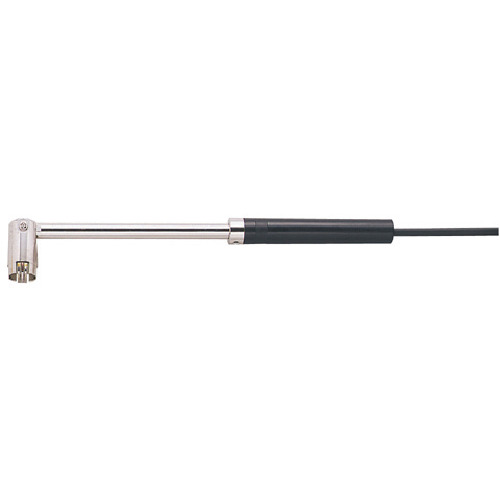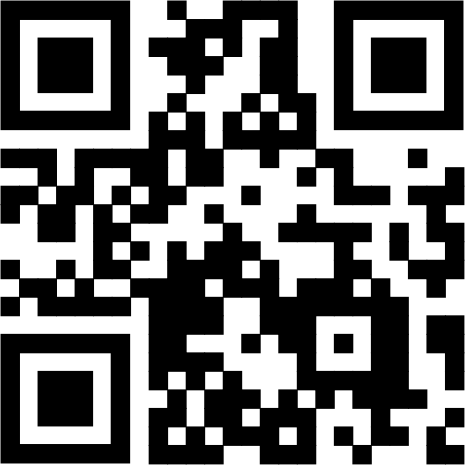(!) Since support from Microsoft will end on January 14th, 2020, Windows 7 will be excluded from the recommended environment from December 15th, 2019 on this site. Vì lý do Microsoft kết thúc hỗ trợ cho Windows 7 vào ngày 14/01/2020, Windows 7 sẽ là hệ điều hành không được khuyến khích sử dụng với trang web này từ ngày 15/12/2019.
Search by Category / Brand Tìm theo danh mục, nhãn hiệu
Search by Category Tìm theo danh mục
- [Thông báo] Cập nhật địa chỉ kho tập kết hàng hóa tại khu vực miền Nam của MISUMI Việt Nam. Xem chi tiết.
[Announcement] Update on warehouse address in the Southern region of MISUIMI Vietnam. See more. - [Cảnh Báo] Thủ Đoạn Lừa Đảo Từ Nhân Viên Giao Hàng – Yêu Cầu Trả Phí Ship. Xem chi tiết.
[Warning] Fraud Calling from Shipper - Asking to Pay Shipping Fee. See more.
Thermometers/Hygrometers
Brand |
|
|---|---|
| CAD |
|
| Days to Ship |
|
1 itemsMặt hàng
- Sort By
-
You can add up to 6 items per a category to the compare list.

Optional Sensor for Sato SK-1260 SK-S305K(8080-58)
SATO KEIRYOKI
[Features]・Optional sensor for SK-1260.[Applications]・For stationary surfaces.(90° angle variable, medium temperature)[Product Specifications]・ø17 × 36 mm・Code 1.1 m・K thermocouple・Temperature -30 to 500°C・Accuracy class 2・JAN Code: 4974425800179・Trusco Code: 805-1180・Weight: 170 g
Product Type Temperature Measuring Range(°C) Temperature minimal display(°C) Drip-proof and Waterproof function Operating Temperature Range(°C) Humidity Minimal Display(%RH) Measured humidity range(%RH) Heat Stroke Index display range(°C) Primary Color Color after discoloration - -30 to 500 - - - - - - - - From: 6,663,808 VND Days to Ship: Số ngày giao hàng: 15 Day(s) or more  15 Day(s) or more
15 Day(s) or more
| BrandNhãn hiệu |
|---|
| Product SeriesDòng sản phẩm |
| From |
| Days to ShipSố ngày giao hàng |
| Product Type |
| Temperature Measuring Range(°C) |
| Temperature minimal display(°C) |
| Drip-proof and Waterproof function |
| Operating Temperature Range(°C) |
| Humidity Minimal Display(%RH) |
| Measured humidity range(%RH) |
| Heat Stroke Index display range(°C) |
| Primary Color |
| Color after discoloration |
You can add up to 6 items per a category to the compare list. | |
| BrandNhãn hiệu | SATO KEIRYOKI |
| Product SeriesDòng sản phẩm | |
| From | 6,663,808 VND |
| Days to ShipSố ngày giao hàng | 15 Day(s) or more |
| Product Type | - |
| Temperature Measuring Range(°C) | -30 to 500 |
| Temperature minimal display(°C) | - |
| Drip-proof and Waterproof function | - |
| Operating Temperature Range(°C) | - |
| Humidity Minimal Display(%RH) | - |
| Measured humidity range(%RH) | - |
| Heat Stroke Index display range(°C) | - |
| Primary Color | - |
| Color after discoloration | - |
Loading...Tải…
ConfigureTạo
Specification/DimensionsĐặc điểm kỹ thuật / Kích thướcĐặc điểm kỹ thuật / Kích thước
-
Product Type
- Thermometer
- Thermo-hygrometer
- Thermometer (External Sensor Type)
- Thermo-hygrometer (External Sensor Type)
- Core temperature thermometer
- Built-in thermometer
- Radiation thermometer
- Condensation Checker
- Thermometer (Installation Type)
- Thermo-hygrometer (Logger)
- Thermo-hygrometer_
- Heat Sensor
- Heat Stroke Index monitor
- Temperature Indicating Material For Temperature Management
- Other Accessory
- Soil acidity meter
-
Temperature Measuring Range(°C)
- -200 to 300
- -200 to 500
- -200~1370
- -200~1372
- -199.9 to +500.0
- -199.9~1370
- -195~450
- -100 to +100
- -100 to +260
- -100 to +300
- -100~300
- -100~360
- -100 to +400
- -100~400
- -99.99 to +400.0
- -70 to +200
- -60~76
- -60 to 155
- -60 to 500
- -60~500
- -60~550
- -60~625
- -60 to 1500
- -59.9 to +99.9
- -56 to +306
- -55 to 220
- -50~50
- -50.0 to +70.0
- -50 to +70
- -50~70
- -50~90
- -50~110
- -50 – 150
- -50~150
- -50~190
- -50.0~199.9
- -50.0 to +199.9, +200 to +1,000 (accuracy: ±1.2)
- -50 to 200
- -50 to +200
- -50 to 250
- -50 – 250
- -50 to +260
- -50 to +280
- -50~280
- -50~288
- -50 to 300
- -50 to +300
- -50 – 300
- -50~350
- -50 to 400
- -50~450
- -50~480
- -50 to 500
- -50 – 500
- -50 to 800
- -50~900
- -50 to 1300
- -50~1300
- -45~95
- -40 to 50
- -40 to 69.9
- -40 to +70
- -40 ~ 70
- -40~70
- -40 – 80
- -40 to 99.9
- -40 – 100
- -40 to 110
- -40 – 120
- -40 to +200
- -40~200
- -40~250
- -40~+250℃
- -40 to +300
- -40~+300℃
- -40~500
- -40~+500℃
- -40 to 800
- -40 to +800
- -40~+800℃
- -40~+900℃
- -38 ~ 365
- -35-560 (Contactless), -100-1,200 (Contact Type)
- -35~1,500
- -33~180
- -33~220
- -33 – 220 (Radiation Thermometer) / -55 – 330 (Core Thermometer)
- -30 to 50
- -30 ~ 50
- -30~50
- -30~70
- -30 to +200
- -30~200
- -30~250
- -30 to +280
- -30~480
- -30 to 500
- -30~600
- -28~48
- -24~44
- -24 to 50
- -20-55
- -20~1,000
- -20 to 40
- -20~40
- -20~50
- -20~55
- -20 – 60
- -20.0~60.0
- -20 – 70
- -20 – 80
- -20 – 100
- -20~200
- -20~400
- -20~600
- -19.5~99.9
- -18~1350
- -18~1650
- -15 to 40
- -10-50 (Sensor: -20 - 1000)
- -10 to 50
- -10.0 to +50.0
- -10 – 50
- -10~50
- -10.0~50.0
- -10 to 50 (internal) / -50 to 70 (external)
- -10.0~60.0
- -10~110
- -10 to +200
- -9.9 to +50.0
- -9.9~50
- -9.9~99.9
- -5 to 50
- -5 – 50
- Refrigerator Room Outside (OUT): -5 - 50, Refrigerator Storage Inside (IN): -50-70
- 0 to +1,000
- 0–40
- 0 to 50
- 0~50
- 0–50
- 0 to 50 (Internal) / -40 to 70 (external)
- 0 to 55
- 0 to 55 (Thermistor)
- 0–80
- 0–90
- 0–100
- 0–150
- 0–200
- 0 to +300
- 0–300
- 0 to +400
- 0–500
- 0 to +800
- 1°C Resolution: -200 to 1,370°C/0.1°C Resolution: -104.9 to 504.9°C
- 1°C Resolution: -200 to 800°C/0.1°C Resolution: -104.9 to 504.9°C
- -50~400
- 100–200
- 143 to 166
- MAX180
- 199 to 224
- -200~300
- -200~500
- 232 to 260
- 232 to 283
- MAX400
- MAX500
- MAX650
- MAX1000
-
Temperature minimal display(°C)
- -50
- -35 to 999.9: 0.1, Other: 1
- -19.9 to 199.9: 0.1, Other: 1
- -9.9 to 199.9: 0.1/Otherwise: 1
- 0.01
- 0.1
- 0.1 (-60°C to + 999.9°C), otherwise 1
- 0.1 (-55.0 to 199.9), 1 (Other measurement range)
- 0.1 (-50 to 199.9), 1 (-50 to 1,300) (Toggle resolution with toggle switch)
- 0.1 (-50 to 199.9), 1 (outside of -50 to 199.9)
- 0.1 (-33°C to +199.9°C), Otherwise 1
- 0.1 (-20 to 200)
- 0.1 (-9.9°C to +199.9°C), Otherwise 1
- 0.1 (-9.9°C to +199.9°C), otherwise 1
- 0.1/1
- 0.2 0.2 (-9.8°C to +180.0°C), Otherwise 1
- 1
- IN・OUT:1 MAX・MIN:1
- 2
- 5
- 143
- 199
- 232
-
Drip-proof and Waterproof function
- Drip-Proof
- Waterproof
- Drip-proof and Waterproof
- NA
-
Operating Temperature Range(°C)
- -40~200
- -40~250
- -40~300
- -40~500
- -40~700
- -40~800
- -40~1000
- -40~1200
- -30~50
- -30~250
- -20 – 50
- -10 to +50
- -10.0 to +50.0
- -10 – 50
- -10 to +60
- -10~+60
- -10~110
- -9.9 to 50.0
- 0 to 50
- 0 to +50
- 0–50
- 0–200
- 0–400
- 0–700
- 0–800
- 0–1200
- 1,000
- 10–40
- 20 ±10
- 50~100
- 250
- 300
- 400
- 500
- 600~900
- 800
- 800~1150
- 1050~1300
- 1200~1500
- 1400~1700
-
Humidity Minimal Display(%RH)
-
Measured humidity range(%RH)
-
Heat Stroke Index display range(°C)
-
Primary Color
- White
- Red
-
Color after discoloration
- Black
- Blue
- Other
Related Categories to Thermometers/HygrometersDanh mục liên quan đến Thermometers/Hygrometers
-
- Vernier Calipers
- Micrometers
- Dial Gauges
- Height Gauges
- Depth Gauges
- Inner Diameter Measuring Instruments
- Gauges
- Squares
- Scales
- Tape Measures
- Tape Measures
- Weighing Instruments
- Goniometers
- Optical Devices
- Level Gauges
- Magnet-Related
- Surface Plates
- Tally Counters
- Gas Measuring Instruments / Detectors
- Scribing Tips
- Stopwatches/Timers
- Tension Gauges
- Pressure Gauges
- Thermometers/Hygrometers
- Environment Measuring Instruments
- Microscopes
- Hardness Meters
- Vibration Meters / Tachometers
- Water Quality / Moisture Measuring Instruments
- Electric Measuring Instruments / Testers
- Viscometers
- Film Thickness Gauges / Detectors
- Flow Meters
- Eccentricity Measuring Instruments
- Surface Roughness Testers
- Data Measurement Equipment
-
FAQ Thermometers
- Question: How many types of thermometers and how to select them?
- Answer: Thermometers for industrial use have 4 main types.
1. Liquid or gas-filled thermometers use a gas or liquid as the temperature-sensing element.
2. Bimetal or bi-metallic thermometers use a bimetal spring as the temperature-sensing element.
3. Electronic devices such as thermistors measure changes in electrical resistance and convert them to changes in temperature.
4. Infrared thermometers are non-contact devices that convert infrared (IR) energy to an electrical signal that can be displayed in units of temperature.
We should select the thermometer following factors, Measurement range, Application, and Operating Environment. - Question: Infrared thermometer, how to choose to use it properly?
- Answer: Infrared thermometers are often used to measure the surface temperature of materials. Infrared thermometers measure temperature by the heat radiation emitted by an object. No need to contact with target object from a distance. Therefore, suitable for choosing to measure in the area hard-to-access area (such as overheating area or inside machinery)
- Question: Which is the better digital or analog thermometer?
- Answer: Analog and digital thermometers do the same job. However, they are very different. The different characteristics make both types suitable for different applications.
The advantages of analog types of thermometers are that they are cheap, easy to read, can be submerged in liquids, require very little maintenance, and are reliable. The disadvantages are that they break easily and there is a risk of mercury poisoning if the glass tube breaks.
On the hand, The advantages of digital thermometers are that they are easy to read, require very little maintenance and give an accurate reading. The disadvantage is that they get damaged easily if dropped and cannot use without the battery powering them. - Question: How Infrared Thermometers work
- Answer: An Infrared thermometer measures both infrared radiation and the emissivity value of a surface. The infrared thermometer has a lens that focuses the infrared rays and tunnels them through the thermometer to a detector known as a thermopile. Then, the thermopile converts the incoming Infrared radiation into an electrical signal that is then displayed as digital units of temperature.
- Question: How accurate of infrared thermometers?
- Answer: Industrial infrared digital thermometers have an error factor that averages around ±1 to 1.5°C, which is more than satisfactory for most industrial applications.







How can we improve?
How can we improve?
While we are not able to respond directly to comments submitted in this form, the information will be reviewed for future improvement.
Customer Privacy Policy
Thank you for your cooperation.
While we are not able to respond directly to comments submitted in this form, the information will be reviewed for future improvement.
Please use the inquiry form.
Customer Privacy Policy